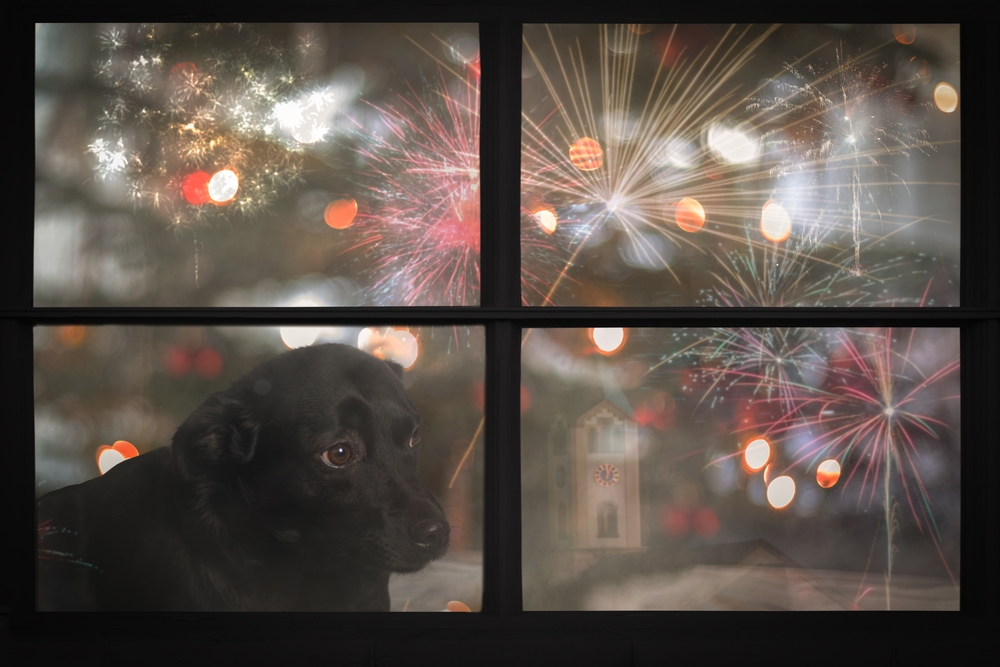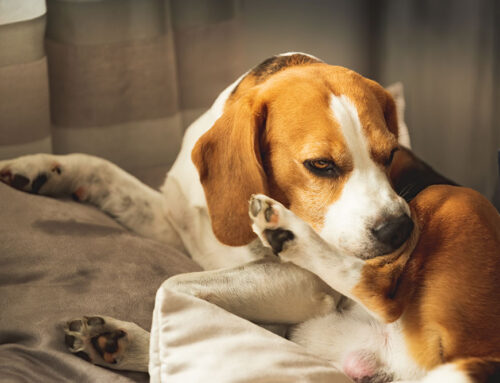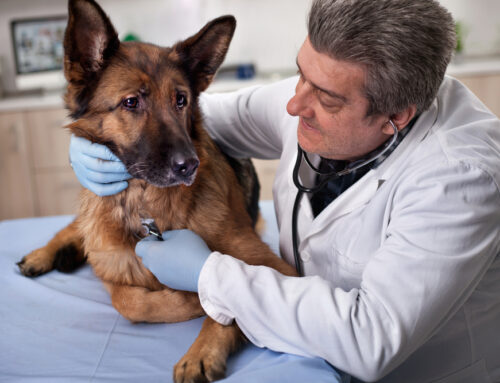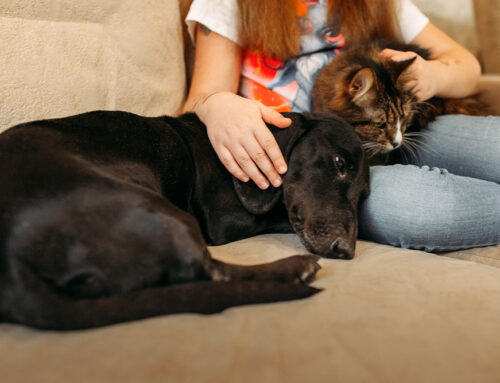A growing trend in veterinary medicine has been the recognition that pets not only have physical health needs, but also emotional and behavioral needs. Ignoring your pet’s mental suffering can diminish their quality of life, but many people don’t recognize when their pet feels fear, anxiety, or stress. The Guam Pet Hospital team wants pet owners to learn to identify abnormal behaviors related to fear and anxiety and help their pets cope with coming events that can lead to distress.
How anxious pets behave
The first step in helping an anxious or fearful pet feel better is to recognize the most common signs of that distress and understand they cannot control their response. Pets should never be punished for fear or anxiety because that can worsen the situation. Instead, pet owners should work with their veterinary team to find solutions.
Fear or anxiety can be displayed in different ways in different situations. Some pets become submissive, while others may lash out. Behaviors may include:
- Whining, barking, or other vocalizing
- Cowering, trembling, or hiding
- Urinating or defecating
- Drooling
- Panting
- Damaging or destroying your home or property
- Trying to escape
- Avoiding eye contact
- Appearing with ears pinned back and tail tucked
Common pet anxiety triggers
The most common pet anxiety triggers are separation, noise aversion, travel, and veterinary visits. Some pets with separation anxiety may become depressed and withdrawn when their owners are away, while others may panic and display the fear or destructive behaviors listed above. Noise aversion is a panic response to loud sounds, such as thunderstorms, fireworks, or smoke alarms. Pets with vet visit anxiety may cower and freeze, while others may lash out and bite.
Noise aversion in pets

Noise aversion is a concern during the summer when thunderstorms and fireworks are a problem. Pets on Guam also may be exposed to startling loud noises from military training and frequent nearby aircraft. Pets with noise aversion experience an involuntary panic-attack response after hearing their trigger noise and may continue to show signs of anxiety for hours or days after the event. Untreated noise aversion will get worse—not better—each time a pet hears the noise.
Keeping pets safe during fireworks
Pets who panic over noise are more likely to get lost July Fourth than any other time of year. You should prepare in advance by asking our team about medications and other treatments and ensuring your pet has appropriate identification. A collar and ID tags are helpful in identifying your pet. However, if a veterinary clinic, police officer, or animal shelter picks up your lost pet and they don’t have their collar, the only way to identify them is by microchip.
Our team can implant a microchip—a device about the size of a rice grain—under your pet’s skin during a quick outpatient visit, and register the chip with your contact information. The chip does not track your pet or emit any signals but must be scanned with a particular reader to reveal the chip identification number. From there, authorities can check the chip number and track down your information to reunite you with your pet.
Treating anxiety and noise aversion in pets
Treatment for separation anxiety, vet anxiety, or noise aversion can help your pet feel calmer during a triggering event and prevent the problem from worsening over time. Treatments should include veterinarian-prescribed anti-anxiety and sedative medications and a long-term behavioral management and training plan.
Medications are best given before an anticipated event, and you should try them out in advance so you can understand how they may affect your pet and adjust the dosing with our veterinary team as needed. Other strategies you can use at home to keep your pet safe and calm include:
- Creating a safe, quiet, insulated space away from noise, such as a bathtub, closet, or crate, depending on your pet’s preference and comfort level. Do not use a crate if your pet has confinement anxiety.
- Using anxiety wraps
- Using anti-anxiety and calming supplements
- Spraying species-specific pheromone sprays or diffusers
- Playing soothing music or white noise
Your pet’s wellbeing depends on their physical, emotional, and behavioral needs being cared for. Like humans with depression or anxiety, pets with untreated behavior problems suffer. The Guam Pet Hospital team can help. Contact us if you anticipate your pet will have difficulty coping with fireworks on July Fourth or to schedule a consultation regarding their overall emotional health.








Leave A Comment